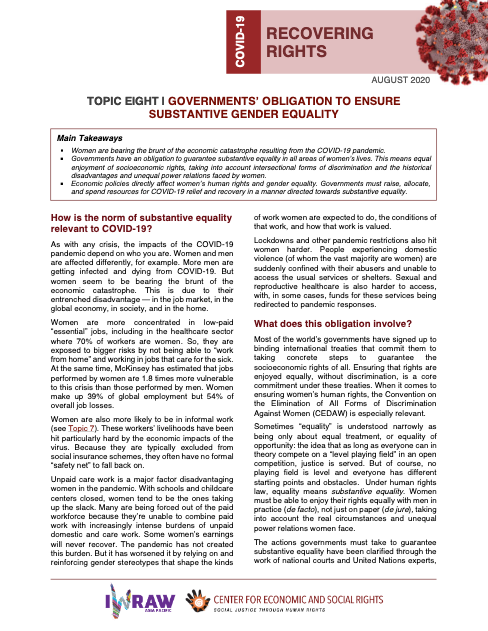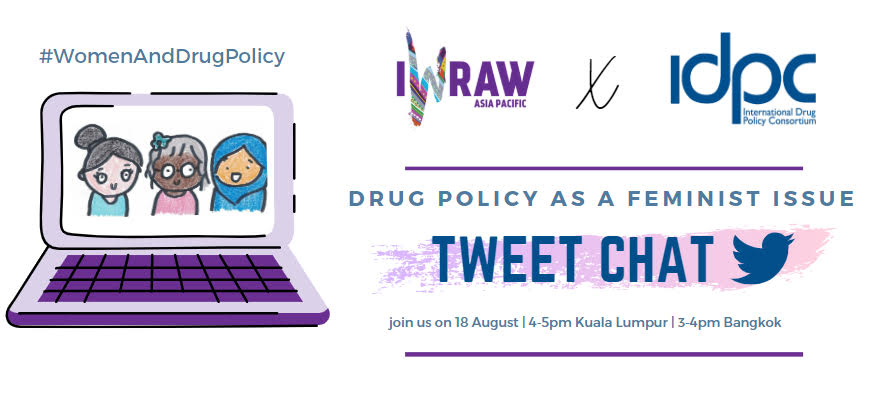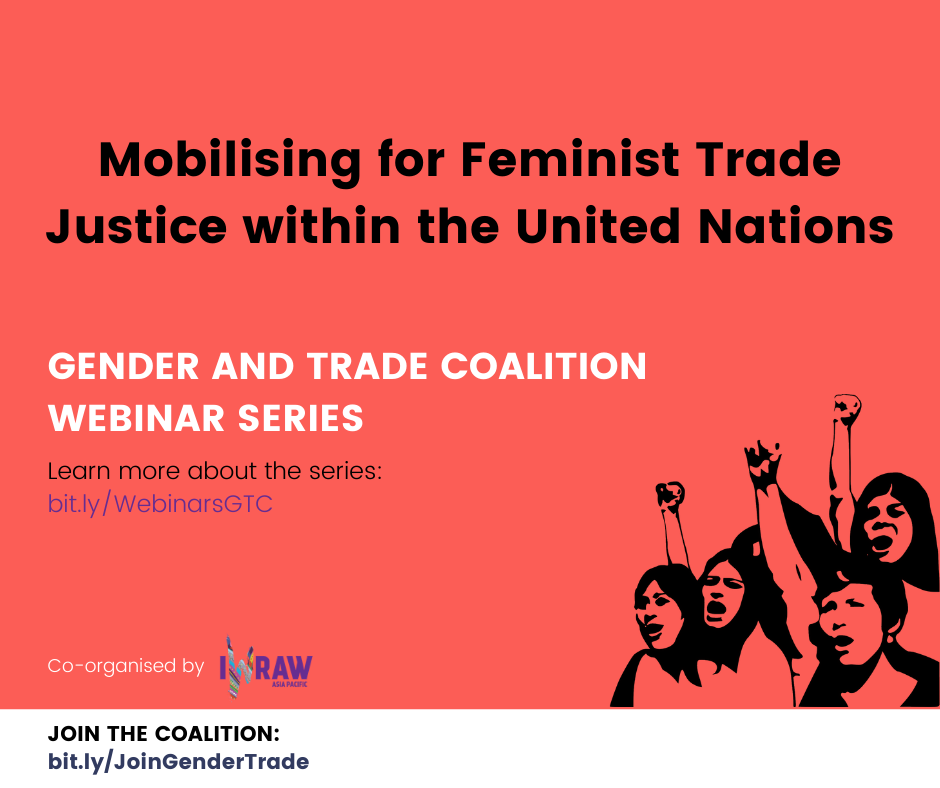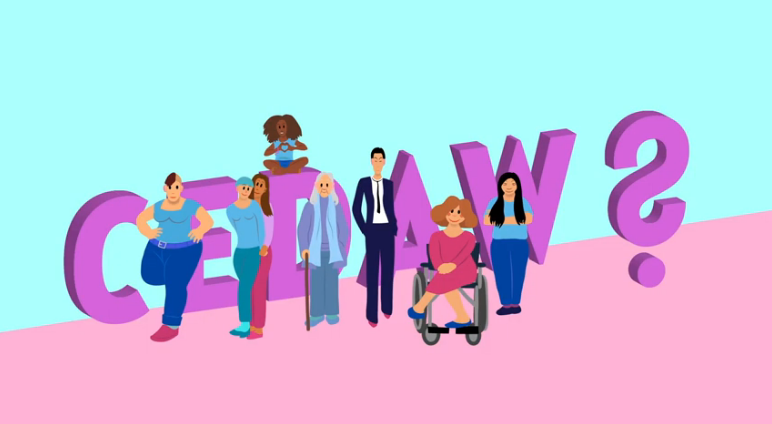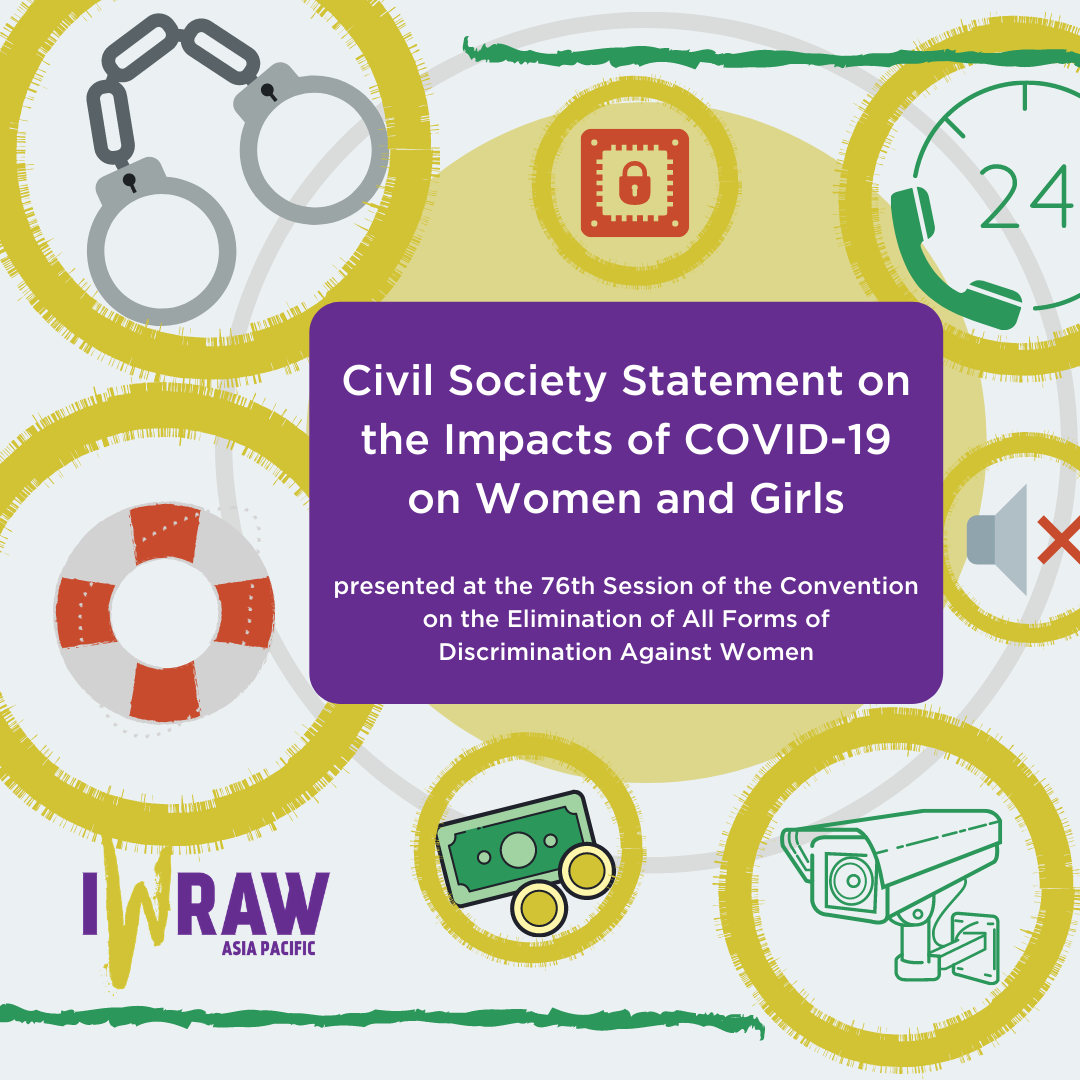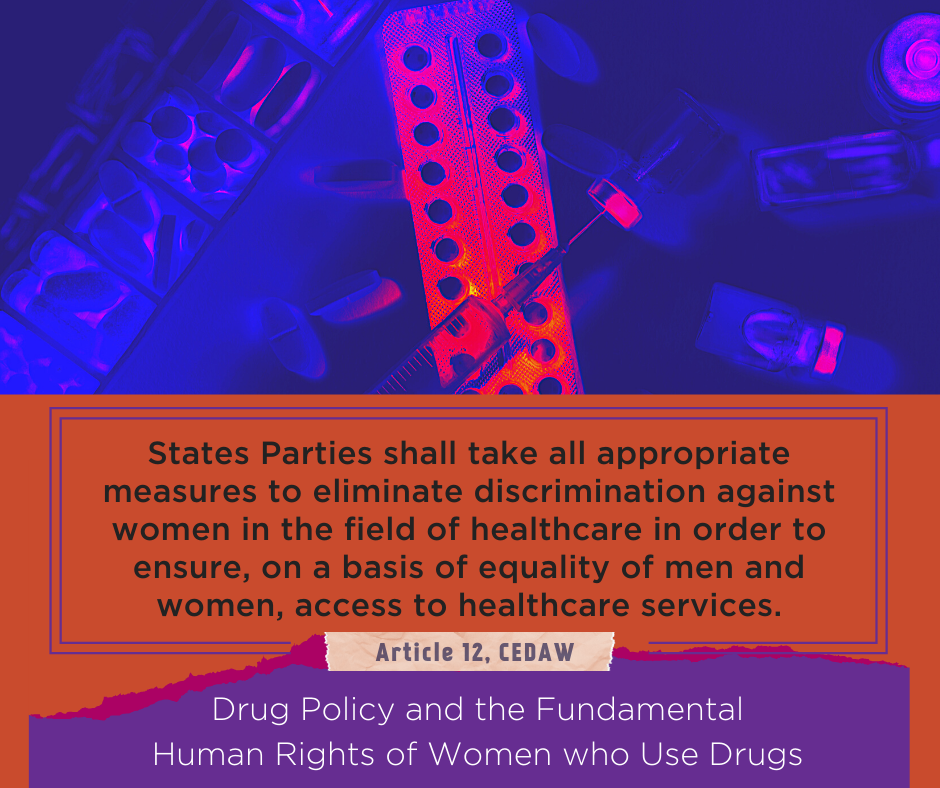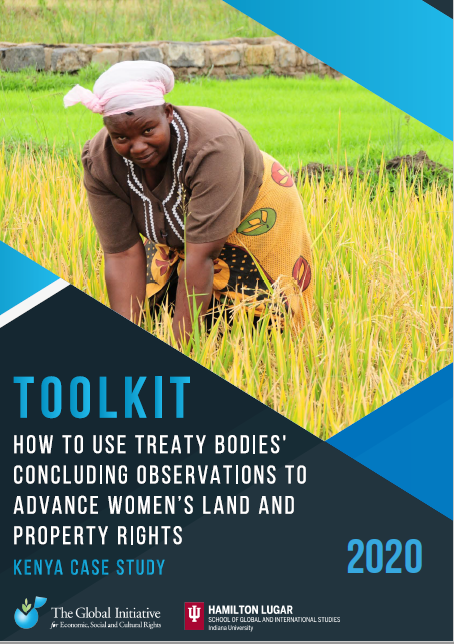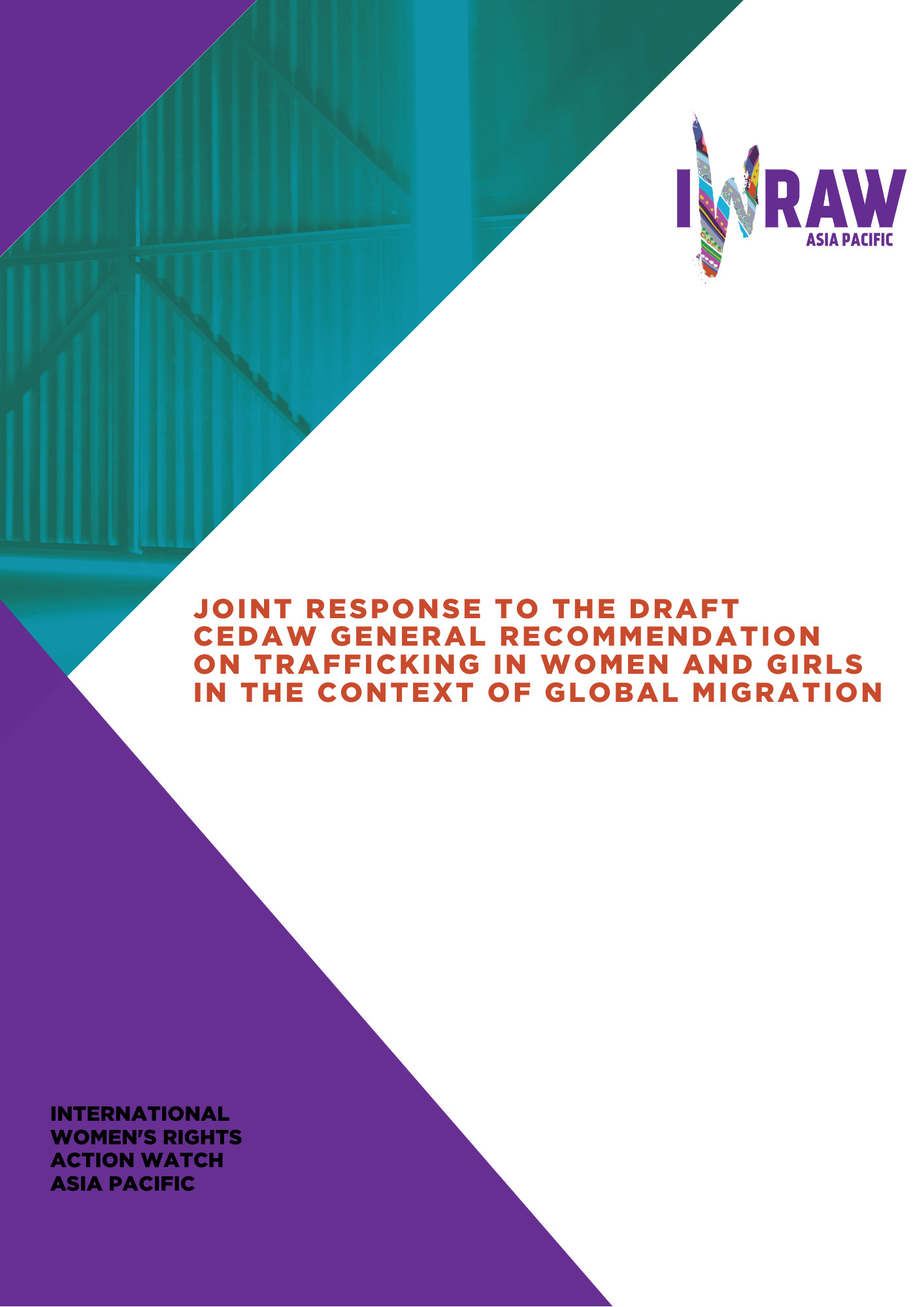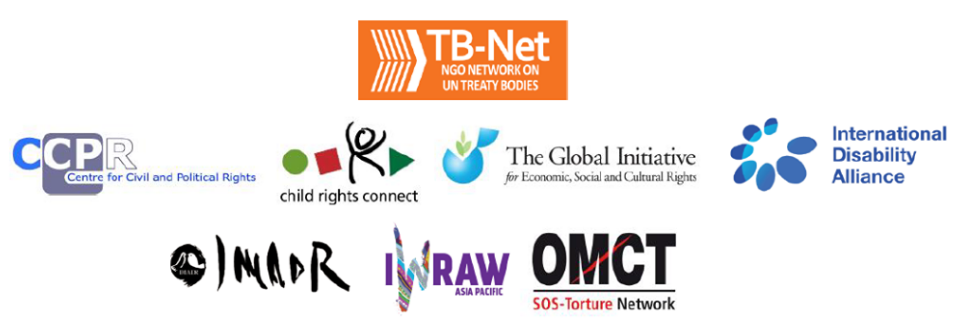Recovering Rights: Governments’ Obligation to Ensure Substantive Gender Equality
August 2020
The Recovering Rights series from the Center for Economic and Social Rights (CESR) looks at opportunities for the post-COVID-19 transformation of our economies, with rights and justice at the centre. This brief, written in partnership with IWRAW Asia Pacific, discusses the disproportionate economic disadvantages faced by women as a result of the pandemic, and the […]
Read MoreIntersectional Feminism and the ‘War on Drugs’
August 2020
In collaboration with IDPC Asia, IWRAW Asia Pacific hosted a tweet chat on women and drug policy, featuring NGOs and experts with particular focus on South and Southeast Asia. The discussion has been compiled into a Twitter Moment for easy reading.
Read MoreMobilising for Feminist Trade Justice within the United Nations
August 2020
The movement for feminist trade justice is long-standing and growing. Global South feminists have been ringing alarm bells for decades – providing meticulous analysis on the devastating impact of trade liberalisation, privatisation, and deregulation on poor and marginalised groups of women and demonstrating the inextricable link between the current global trade system, colonialism and imperialism. […]
Read MoreCEDAW in Brief: The UN Convention on the Rights of Women and Switzerland
2020
This video by NGO-Koordination Post Beijing Schweiz provides a quick guide to CEDAW with a focus on its application in Switzerland. Duration: 3:03 Subtitles: English Also available in French, German and Italian.
Read MoreCivil Society Statement at the 76th CEDAW Session on the Impacts of COVID-19 on Women and Girls
June 2020
This statement was delivered by IWRAW Asia Pacific programme officer Marisa Hutchinson and programme manager Shanti Uprety at the 76th CEDAW session on 29 June 2020, held online due to the COVID-19 pandemic. The statement was compiled from information shared by 28 NGOs from 22 countries around the world. Seven pages, PDF; also available as […]
Read MoreDrug Policy and the Fundamental Human Rights of Women who Use Drugs
June 2020
Routine mistreatment and neglect of women who use drugs violates virtually every major human rights treaty; this report makes particular reference to CEDAW. 41 pages, PDF, by University of Miami School of Law Human Rights Clinic, the Canadian HIV/AIDS Legal Network, IWRAW Asia Pacific, E.V.A., and Eurasian Harm Reduction Association.
Read MoreHow to Use Treaty Bodies’ Concluding Observations to Advance Women’s Land and Property Rights
June 2020
This toolkit from the Center for the Study of Global Change at Indiana University and the Global Initiative on Economic, Social and Cultural Rights (GI-ESCR) provides advocacy information and advice, together with a case study on women’s land and inheritance rights in Kenya, to illustrate how Concluding Observations can be used as leveraging tools at […]
Read MoreJoint Response to the Draft CEDAW General Recommendation on Trafficking in Women and Girls in the Context of Global Migration
May 2020
Submitted by 19 individuals and organisations, including IWRAW Asia Pacific, this six-page PDF outlines key concerns on, and requests changes to, the draft General Recommendation which was shared by the CEDAW Committee in March 2020.
Read MoreJoint Letter on UN Human Rights Treaty Bodies during the COVID-19 Pandemic
May 2020
Two-page joint letter in PDF format from NGOs to chairpersons of UN human rights treaty bodies, including TB-Net of which IWRAW Asia Pacific is a member. The letter calls for continued monitoring of states’ compliance with their treaty body obligations during the crisis, and safe and effective civil society involvement as treaty bodies explore switching […]
Read MoreTB-Net Statement on the Covid-19 Pandemic and UN Treaty Bodies
April 2020
This two-page statement from TB-Net, of which IWRAW Asia Pacific is a member, calls for the United Nations treaty bodies to resume their important work as soon as possible, and ensure the continued meaningful engagement of civil society representatives with the treaty bodies.
Read More

